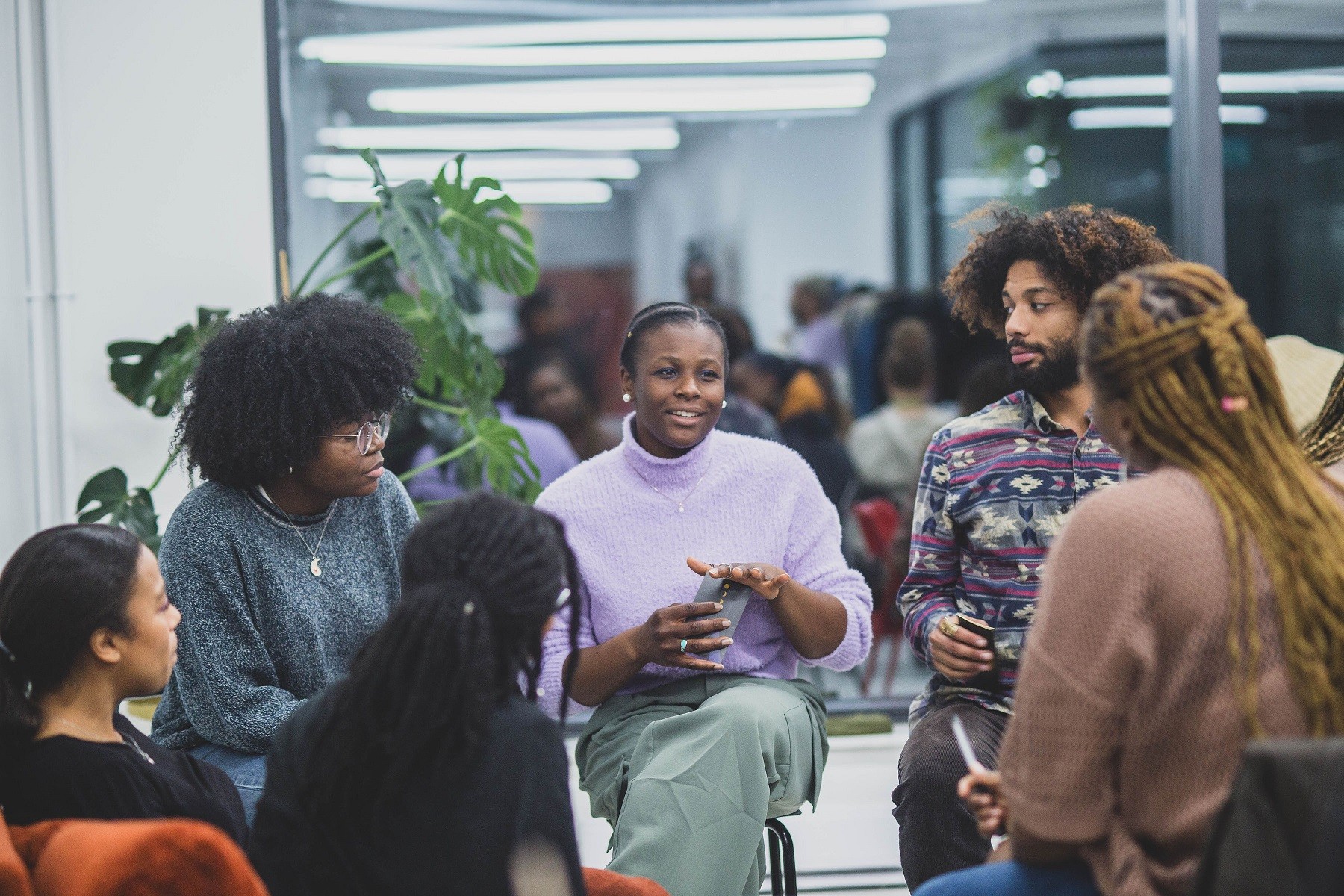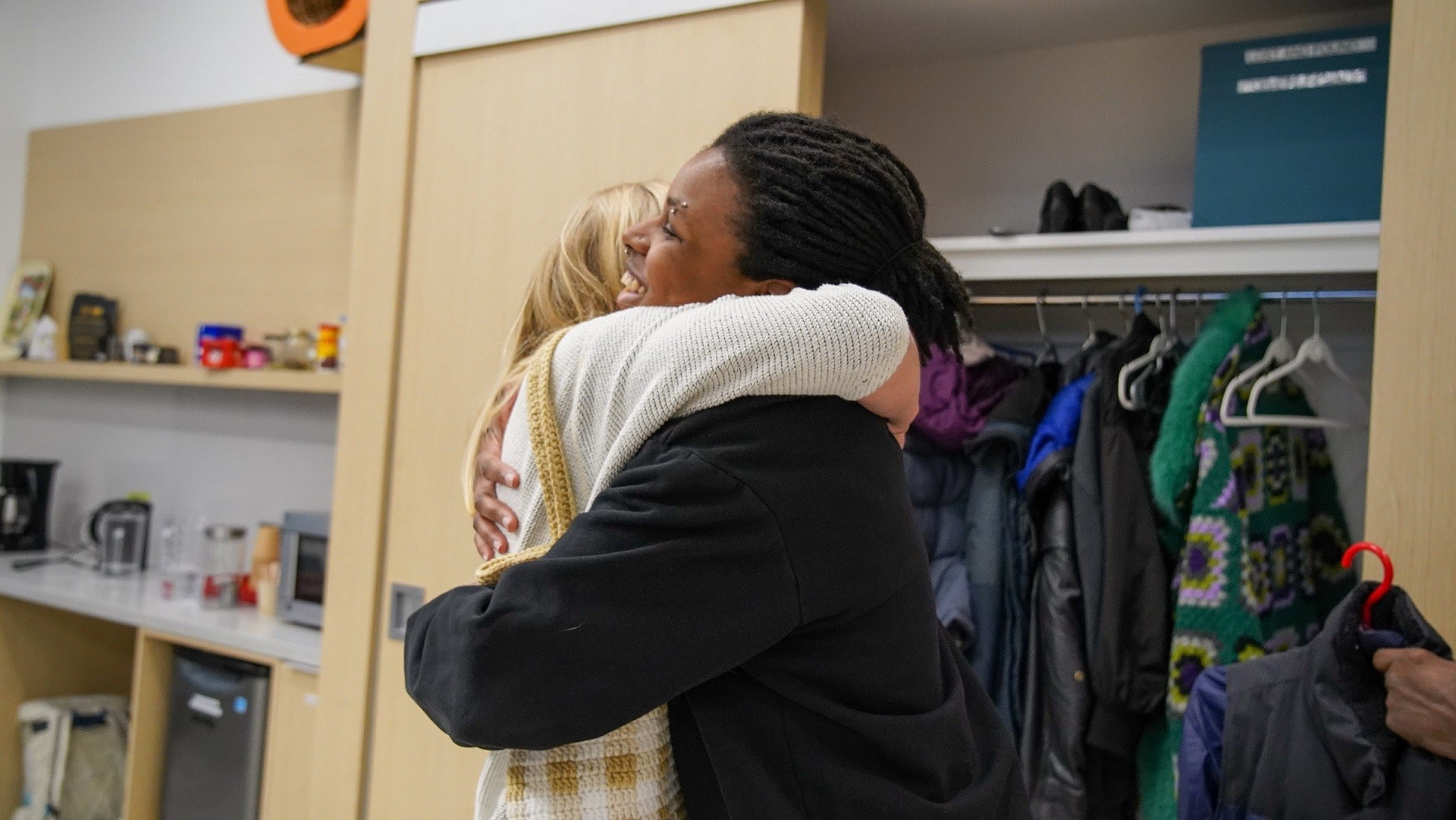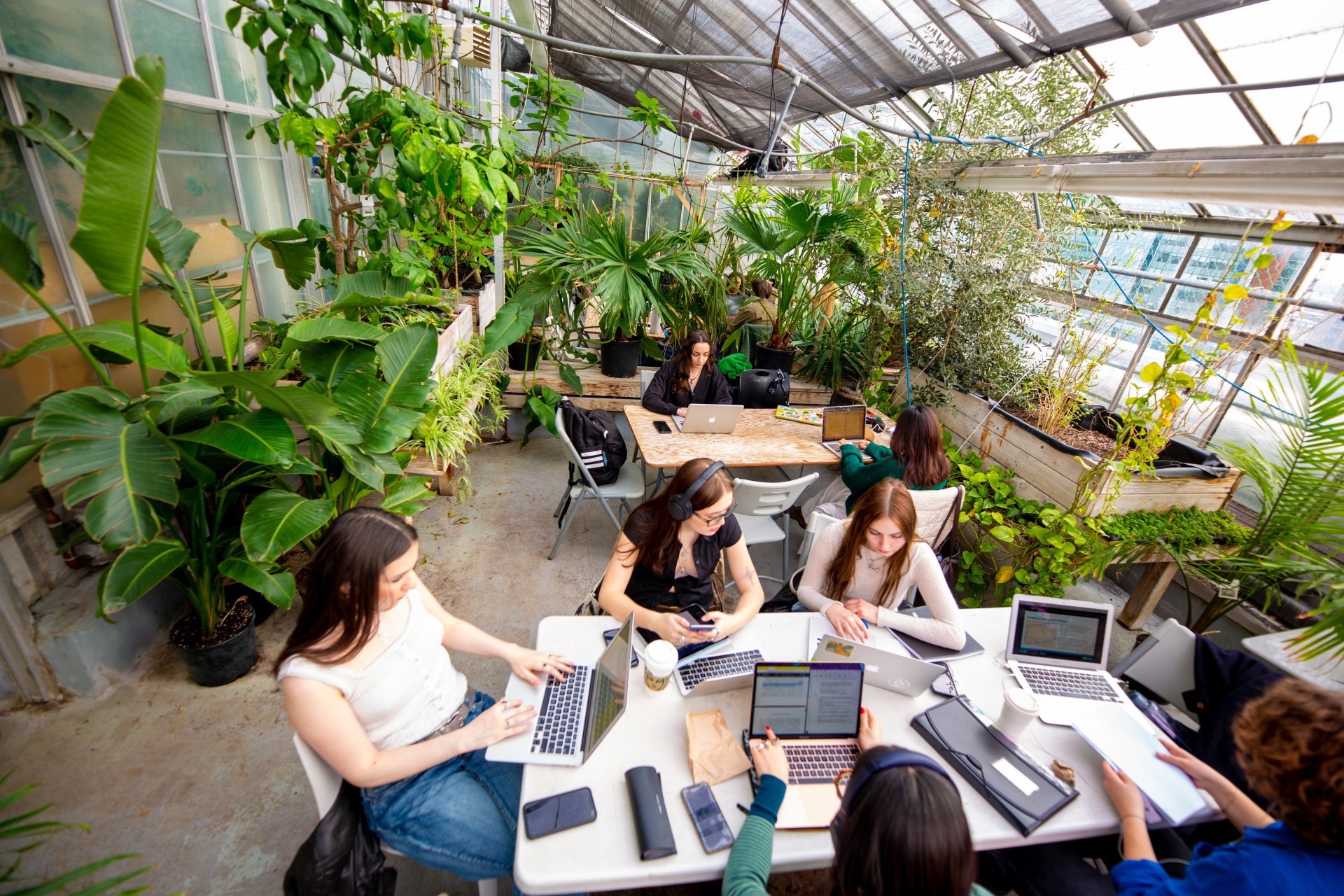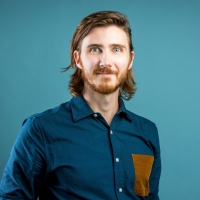Christian Favreau is the Lead, Learning and Storytelling at the SHIFT Centre. Christian coordinates a variety of programs and workshops for members of the SHIFT Learning Community oriented towards learning and sharing about social transformation. He is also responsible for SHIFT's communications channels, and sharing the stories of SHIFT's work.
Intentionally Transformative (3ʳᵈ) Spaces
by Christian Favreau

We evolved as a social species and have relied on cooperation to survive and build the society we find ourselves in today. When we break down our society to its base components, we can see that it is made up of social interactions, and that the locations for said social interactions—especially third places—are the binding agents. As venues for informal public life and community, third places are distinct from the social environments of home and the workplace—‘first’ and ‘second’ places. They can be anywhere social life happens: parks, cafes, hair salons, gyms, and public libraries. But not all third places are made equal. In The Great Good Place, Ray Oldenburg and Karen Christensen suggest a few characteristics that make an effective third place: comfortable, informal, open, inviting, convenient, accessible, and unpretentious. Moreover, a good third space has regulars and is abundant in conversation and laughter.
I would argue that most (if not all) for-profit spaces are less equipped to provide a venue for community.
Equal parts workplace and community space, a university-setting like Concordia sits uneasily within these distinctions. And these lines are further blurred when we consider that full participation here sits behind a paywall. Not to mention, Concordia’s campuses cater to at least 60,000 people (a small city) and are too sprawling to be that venue for social connection. Like any university, Concordia is neither an informal, accessible, nor unpretentious place, but there are pockets within this small academic ‘city’ that fit the bill. From its Centre for Creative Reuse, to its libraries, to its countless cafes, Concordia is—much like society itself—held together by these sites of social reprieve. They are just as much Concordia as the classrooms, labs, and administrative offices. Two spaces on campus that prioritize wellbeing and transformation stand out in particular: the SHIFT Centre and the Greenhouse (both in its past and present form).

Sites of social wellbeing
Intention in a third space matters. You can co-work both at a coffee shop and at the SHIFT Centre, for instance, but they are not the same. In fact, one element that dilutes the accessibility of most third spaces is their financial barrier to entry. That the SHIFT Centre is free to book, to congregate in, and to come by on Tuesdays and Thursdays for co-working and a hot beverage is intentional and vitally important. First of its kind, the Concordia Greenhouse similarly provides year-round, free access to a social green space. Amid an affordability crisis, free and accessible spaces make the work of community building and resilience possible—a sharp contrast to the pervasive impulse to implement austerity measures and a culture of scarcity. I would argue that most (if not all) for-profit spaces are less equipped to provide a venue for community.
There is power in providing someone a place to just be.
Existing in a capitalist society like ours requires constant compromise: from working to remain housed, to voting in an electoral system without proportional representation, to paying for entrance to a space. The compromises pile up, and so we must seek to create spaces where such contradictions to human flourishing are mitigated as much as possible. Sometimes, people wander into the SHIFT Centre during our events simply because there is food. Sometimes they stay to learn and converse, but sometimes they don’t. Either way, we've provided people with some food and reprieve when they needed it. It can feel stressful (and at times shameful) to have very few places to go because so many require that you spend money. There is power in providing someone a place to just be. It goes a long way for making a space more welcoming, too, because there are fewer pressures to justify one’s continued presence in it.

Though the Greenhouse moved from its larger, closed space on the 13th floor to a smaller, more open space on the 7th floor of the Hall Building,* its intentionality is mostly unchanged. The Greenhouse, now surrounded by prayer rooms, people doing dance choreography, and the Peoples’ Potato, remains a place of hands-on learning—a dirty space—where horticulture and botany are seen as a path towards addressing mental health. When a space is easy to access and is intentionally welcoming, people are more likely to gather and break out of social isolation. Winter, a peak period of social isolation, was the Greenhouse’s busiest time when it still had the larger, warm, and sun-soaked space on the 13th floor. This is another means of building stronger communities, as the link between social isolation and mental health issues, like depression and anxiety, is clear. Being around plants, too, tends to induce a sort of meditative mindset.
Sites of resistance
Third spaces are inherently important, but they are not inherently transformative. Intention, as always, matters a lot. As Roberta Du writes, “[p]hysical space is never neutral. Its design, who controls it, and who are welcome all influence which voices are heard and which are suppressed.” In their book, Ray Oldenburg and Karen Christensen argue that third places can also address current political polarization, social isolation, and climate resilience. In other words, healthy people can organize better. A third place can be for gathering, learning from each other, building trust and accountability, and imagining a different future from the one we are told is inevitable. For both the Greenhouse and SHIFT, physical space for people to convene enables collaborations that otherwise wouldn’t happen. We need more humble learning hubs where people can build community across difference and ask powerful questions. Powerful questioning can help us detangle the conspiracies from the genuine diagnoses of the system that are based on critical thought. This work of detangling is very hard to do individually.
...with the expeditious rise of fascism, we need free and accessible spaces where collaborative learning, truth-telling, and trust-building can occur.
As an activist and community organizer, I know how essential place is in doing change-work. I have led and attended meetings in classrooms, parks, cafes, offices, and former hospitals. We have always been grateful to be granted space for political organizing, but it often feels like secretive and marginal work because these venues aren’t built intentionally for it. What sets the SHIFT Centre apart from most other spaces where organizing happens is that this type of social transformation work is encouraged and nurtured. The Greenhouse, by contrast, allows for a more individual form of transformation, though the existence of a downtown greenhouse is no less political. By providing mentorship on horticulture project start-up, equipment, space, and learning opportunities, people come to the Greenhouse and develop a passion. Sometimes, this passion stems from a dark place, demonstrating how healing a space like Greenhouse can be.

Life in our society is moving increasingly faster, and (mis)information is often being spread at rates beyond our capacity to understand. It’s hard to explain, but in an accessible space that allows and encourages you to simply be, time slows down. In a space made for collaborative learning and social transformation, the noise ceases—just enough to begin imagining another future, one that is just, inclusive, and sustainable. In other words, a third space like the SHIFT Centre or the Greenhouse can, at least momentarily, slow the pace of oppression enough to try to collectively understand it. It is difficult to convey just how much we need to collectively understand it in a moment like this; with the expeditious rise of fascism, we need free and accessible spaces where collaborative learning, truth-telling, and trust-building can occur. Only through community-led work to build an equitable society can we counter fascism, and third spaces are crucial supports in that work.
*to follow the status of the Concordia Greenhouse Project, visit their website.




